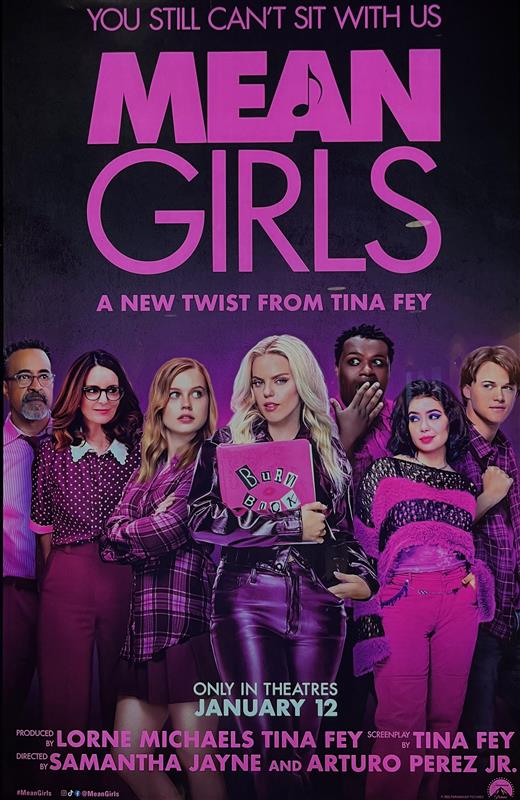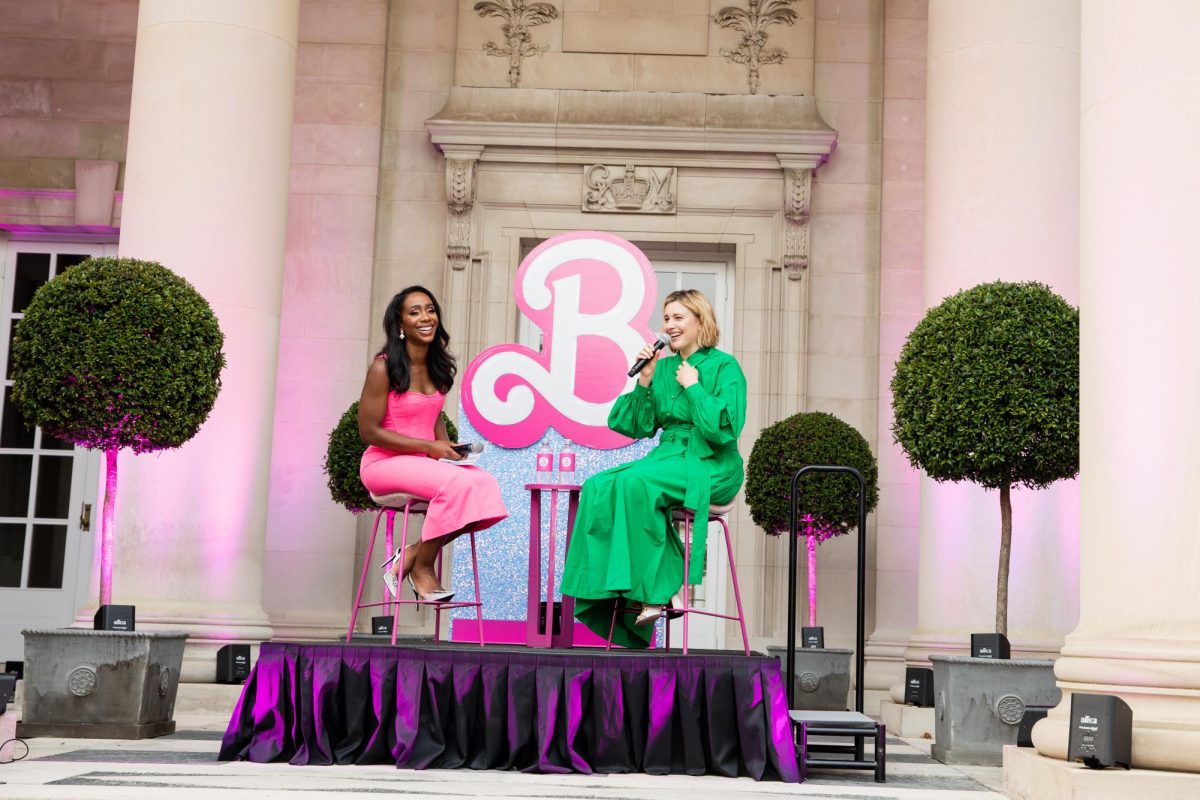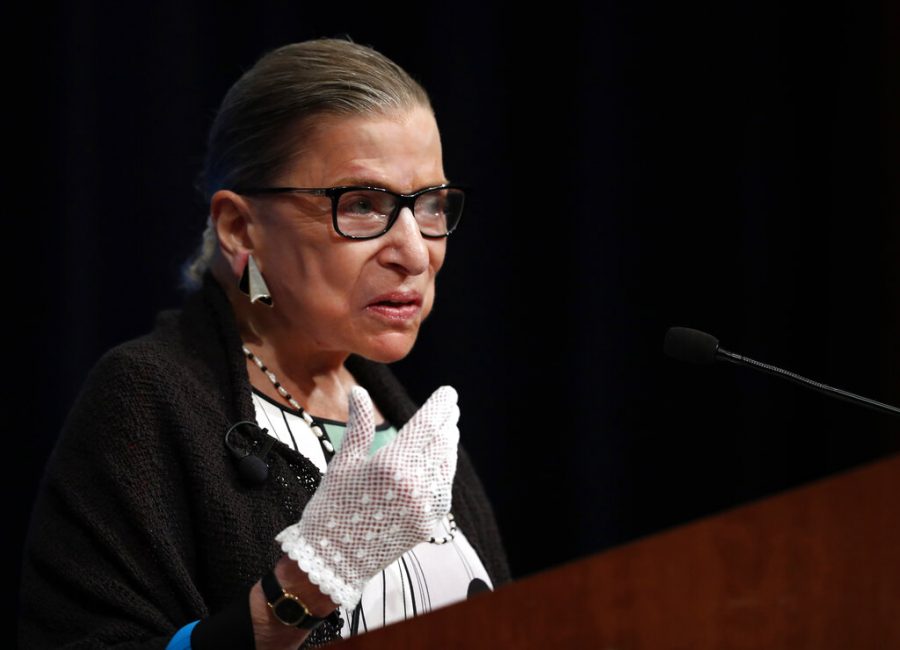Supreme Court Justice and gender equality icon Ruth Bader Ginsburg dies at 87
Ginsburg, who was a Supreme Court Justice and notable lawyer, died from complications related to pancreatic cancer
Ginsburg speaking at the Georgetown Law Center in 2017
When Supreme Court Justice Ruth Bader Ginsburg passed away on Friday, Sept. 18 from pancreatic cancer, the news came harshly to many people. Ginsburg, who served on the Supreme Court for 27 years, was a strong advocate for civil rights, especially regarding gender equality.
President Bill Clinton appointed her to the Supreme Court in 1993, a position she held until her death. She was the second female Supreme Court Justice after Sandra Day O’Connor and the first Jewish woman appointed to the Supreme Court.
As a Supreme Court Justice for 27 years, Ginsburg helped decide many landmark cases such as United States v. Virginia (1996), where she wrote the majority opinion that it was unconstitutional for Virginia Military Academy to deny women admission, and Obergefell v. Hodges (2015), in which it was ruled unconstitutional for states to disallow gay couples to marry. These are just a few of the many cases where Ginsburg protected civil rights.
However, she was possibly best known for her strong dissents. One of her sharpest came in Ledbetter v. Goodyear Tire and Rubber Company (2007), a gender-based wage discriminatory case where the Supreme Court ruled in favor of the employer. Ginsburg disagreed, calling the decision “a cramped interpretation of Title VII, incompatible with the statute’s broad remedial purpose” and claimed that wage discrimination was difficult to recognize within 180 days and instead happened slowly over time.
According to Oyez, run by Cornell’s Legal Information Institute, besides her career as a Supreme Court Justice, Ginsburg had an illustrious career as a lawyer. She argued six cases in front of the Supreme Court with her position with the ACLU, including Frontiero v. Richardson (1973), where she argued that it was unconstitutional for military spousal dependency to have different qualifications based on gender. She also argued Weinberger v. Weisenfeld (1975), saying that it was discriminatory for widows and not widowers to be allowed certain survivor’s benefits. Ginsburg proved that equality for women benefits men as well.
While Ginsburg did many great things for women, she has been criticized for her, at times, racial insensitivity. According to CNN, in 2016 Ginsburg criticized Colin Kaepernick, the quarterback of the San Francisco 49ers, after his decision to take a knee during the national anthem as a protest against racial discrimination. She called his actions “really dumb” and “a terrible thing to do.” Ginsburg apologized to Kaepernick for her comments a few days later.
Another of Ginsburg’s controversies lies with her decision on City of Sherrill v. Oneida Indian Nation of New York (2005). In 1807, the Oneida Native American Nation sold part of their government-designated reservation in New York. In the 1990s, tribe members began to buy the land back, and said that because it was part of their reservation as decreed by the Treaty of Canandaigua of 1794, it should be exempt from taxes. The City of Sherrill disagreed. The Oneidas said that according to the 1790 Non-Intercourse Act, the land only lost its status with federal consent, which it didn’t have in 1807. Ginsburg ruled in favor of the City of Sherrill, a decision that many criticized as colonialist.
Ginsburg was born Ruth Bader in 1933 in Brooklyn. She was a strong student and influenced by her mother to be a hard worker, even as a child. She went to Cornell University and was at the top of her class, graduating in 1954
She married Martin Ginsburg, a Cornell law student, in 1954. According to a Supreme Court press release, they had two children, four grandchildren, and one great-grandchild. She attended Harvard Law School and transferred to Columbia Law School in 1959 when her husband took a job in New York. Ginsburg graduated at the top of her class despite having only spent a year there.
She faced many barriers and was subject to much workplace discrimination because of her gender. While she studied at Harvard Law School, her professors told her that she was “taking a man’s position” and was the first female member of the Harvard Law Review. She found difficulty getting employed because law was such a male-dominated profession. She handled all this while raising her family, a very difficult task.
She became heavily involved with the ACLU as its general counsel and on the National Board of Directors. As a part of the ACLU, she founded the Women’s Rights Project, which helped women win court cases based on gender discrimination.
Her staunch deviation from the patriarchy and influential work and life has lead her to become a feminist icon in the eyes of the public, even earning her the nickname “Notorious R.B.G,” a play on the rapper Notorious B.I.G. She will be remembered as a strong leader who dedicated her life to justice and equality.










































